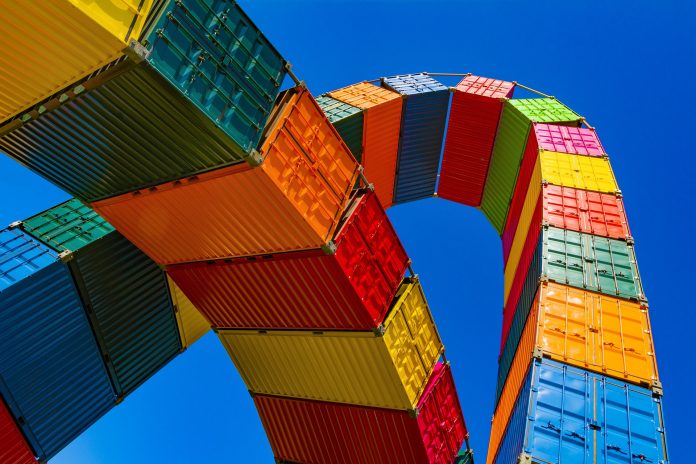Following the Covid crisis and Russia’s invasion of Ukraine, the internal trade policy debate within the EU has been heating up. Reportedly, the one thing French President Emmanuel Macron and German Chancellor Olaf Scholz agreed last week at their “reconciliation” lunch was that U.S. subsidiy protectionism should be countered with EU protectionism. Thankfully, at least the European Commission doesn’t agree with this approach to fight fire with fire, as its executive vice president and trade chief Valdis Dombrovskis urged for “resolving this issue through dialogue,” adding “we now have established a joint task force in order to solve the problem of the Inflation Reduction Act”, the protectionist and subsidy-ridden American law with the Orwellian name.
Separately, Germany, Italy and Finland are proposing that EU trade deals no longer require the approval of national and regional parliaments, Bloomberg reports. A mere approval by the European Parliament and the Council would be enough. France is opposed to this proposal which will be discussed by EU trade ministers, at their meeting in Prague on Sunday and Monday.
France, which has been the EU’s most protectionist force for years, is likely opposed to this for the wrong reason. The more ratifications that are needed, the less likely a trade deal will be approved. Still, it is taken the right stance. Not only is it important to get sufficient democratic consent for something as important as trade agreements, it is also unhealthy to grant excessive power to the EU machinery.
Let’s not forget how the German EU presidency managed to push through an admittedly rather thin trade deal with China at the end of 2020 – the “Comprehensive Agreement on Investment”. Only a few months after that, it was all but shelved, also because of China sanctioning a number of MEPs, in a tit-for-tat move over EU sanctions for Chinese officials involved in China’s treatment of the Uyghur minority.
Especially in the age of “decoupling”, it does not harm to think things through when it comes to trade, and to make sure everyone is on board. Germany, Italy and Finland are likely pushing this proposal in a bid to reinvigorate the EU’s performance on closing trade deals. Especially now that Europe has been racking up a record trade deficit, it looks more important than ever to prioritise trade, so their intention is good, despite the flawed method.
EU’s top foreign policy civil servant: EU-China Comprehensive Agreement on Investment in indefinite limbo.
"I don't know if it's basically dead but I do not see any kind of substantial development in the foreseeable future.”
H/t @PhelimKine https://t.co/UsUlXomDzU
— Stuart Lau (@StuartKLau) December 3, 2021
Perhaps the EU should start with not putting up any extra trade barriers itself
Attempts to close trade deals are laudable, but unfortunately, it needs two to tango, and great breakthroughs have not been secured by DG Trade in recent years. That is not only due to protectionist sentiments elsewhere. It is also due to Europe’s own dirty protectionist underbelly. France played an important role in this, effectively blocking work on pending deals ahead of its presidential election in April.
The one thing the EU could start with in such a context is not to unilaterally impose more trade barriers on current trade flows. Yet, that is especially what the EU is doing.
It is doing so through its so-called “Carbon Border Adjustment Mechanism” or CBAM, which basically amounts to an EU “climate import tariff”, something which may well violate WTO rules.
Another initiative to burden imports are EU plans to restrict palm oil imports. In September, the European Parliament voted to substantially tighten up the European Commission’s original proposal on mandatory due diligence to stop deforestation in supply chains, which entails requiring companies to check whether goods sold in the EU have not been produced on deforested or degraded land anywhere in the world.
This while – according to the New York Times – “Europe is sacrificing its ancient forests for energy”, not to mention the EU-driven subsidies for biomass – wood burning as a source of energy – something that the same EU and also a majority of the European Parliament consider to be environmentally friendly.
All of this really amounts to vulgar protectionism, given how it mainly hurts emerging economies like Indonesia, Malaysia and Papua New Guinea. Noteworthy is also how the EU Commission’s original proposal simply exempted rubber imports from the new requirements, which is unlikely to be unrelated to the EU’s high demand for rubber, which happens to be the main cause of deforestation in West and Central Africa.
The fact that palm oil deforestation in Indonesia, Malaysia and Papua New Guinea, has fallen to its lowest level since 2017, according to a satellite analysis by Chain Reaction Research (CRR), does not seem to matter in all of this. In fact, according to a study by researchers at the University of Bath, published in Nature, a ban on palm oil may just worsen deforestation, as alternatives like sunflower or rapeseed oil require more land, water and fertilisers.
How to move forward
A few months ago, a letter by nine EU member states warned that the EU risks falling behind other trade powers, like Japan, which already has 80% of its trade covered by free trade deals. This “should be a wake-up call for Europe,” according to the letter, which added:
“Russia’s war on Ukraine shows that the EU’s strategic choices do not take place in a vacuum, but in a global context where different powers and economic blocks are vying for leadership.”
Russian War Leads EU Bloc to Push for Faster Trade Deals https://t.co/OZ79Uvj19I
— Amb Antonio Garza (@aogarza) May 5, 2022
In particular, the member states called for faster negotiations with New Zealand, Australia, India and Indonesia, while speeding up the implementation of trade deals agreed with Chile, Mexico and the Mercosur trade bloc, which includes Argentina, Brazil, Uruguay and Paraguay. The contrast of the success of the “Regional Comprehensive Economic Partnership”, which includes China, is thereby highlighted in the letter.
EU talks with Chile in particular have been difficult. This is ironic, given how Chile has great access to lithium, a key material to build batteries and other high-tech components, especially when the EU has also just decided to effectively ban new combustion-engine cars from 2035. The latter looks like yet another attempt to micromanage technological development and it is likely to backfire once again, if only because a lot of the resources needed for the electric vehicles the EU is so keen to push onto consumers are to be found in China, with Chile as the second most important supplier.
What could possibly go wrong? https://t.co/CapVAMRwpp pic.twitter.com/eaMNh6C9Xl
— Pieter Cleppe (@pietercleppe) October 28, 2022
The letter by EU member states concluded:
“If we could accelerate our work to conclude and implement negotiated trade agreements, we would bolster our economic and trade interests and increase the EU’s overall credibility as a serious trade partner.”
Wise words, but if closing more trade deals proves too difficult, the EU could start with not creating extra burdens for current trade flows.













